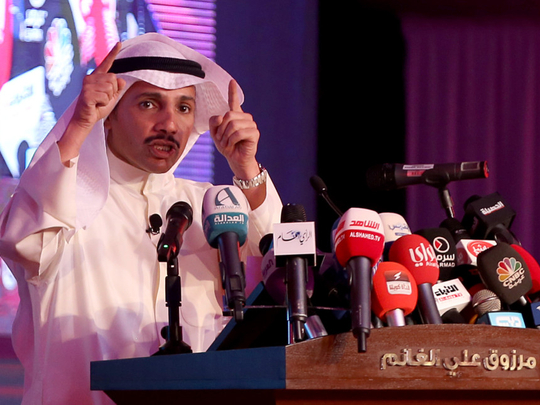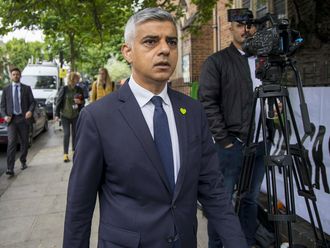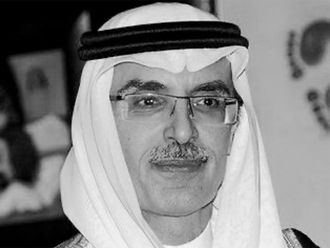
Manama: Under intense fire from the opposition, Marzooq Al Ghanem, speaker of the Kuwaiti parliament that was dissolved last month, has lashed out at his critics, pledging he would continue to fight those who are intent on “burning down the country.”
Al Ghanem who was elected Speaker following the parliamentary elections in 2013 has been accused of failing to protect Kuwaitis and of siding against them by rubber stamping unpopular decisions.
However, the Speaker, who comes from a wealthy business family, rejected the claims and vowed to continue his fight for the sake of Kuwait’s stability and security against those who were plotting to bring it down and “burn it”.
“I swear by God that whether I am a citizen, a lawmaker or a Speaker that I will confront your plotting aiming to burn the country,” he said as he addressed an electoral rally on Tuesday evening.
“As I apologise to my parents for any inconvenience they suffered because of my positions, I stress that I am not worthy of being your son if I bow my head.”
Al Ghanem said that he wanted the people to know the whole truth about what was happening ahead of the elections to be held on Saturday.
“I was the target of vicious attacks during the last week of the elections. I was accused of undermining projects, and now there are some candidates who are drafting a petition attacking me,” he said.
According to reports in Kuwait, some lawmakers were being enticed to sign a petition that they would not elect Al Ghanem as Speaker if he won a seat in this election.
However, Al Ghanem refuted claims that the outgoing parliament was weak.
“The parliament endorsed 114 laws, the highest figure since 1963, and the housing situation improved drastically allowing the construction of 65,000 new homes. The waiting period to get a house from the government was reduced from 10 to four years,” he said.
Other major successes were exempting private homes from the increase in electricity and water fees, the enactment of a law to protect families and children, the establishment of the Anti-Corruption Authority, and the electronic law, he said.
Al Ghanem added that the parliament succeeded despite numerous obstacles.
“The 2013 parliament came into existence in very difficult conditions, and there were some people who did not want it to succeed. Therefore, our top priority was to ensure political stability and put an end to the chaos and slogans that marred the two preceding legislative assemblies. We needed the stability because there can be no development without it,” he said.












